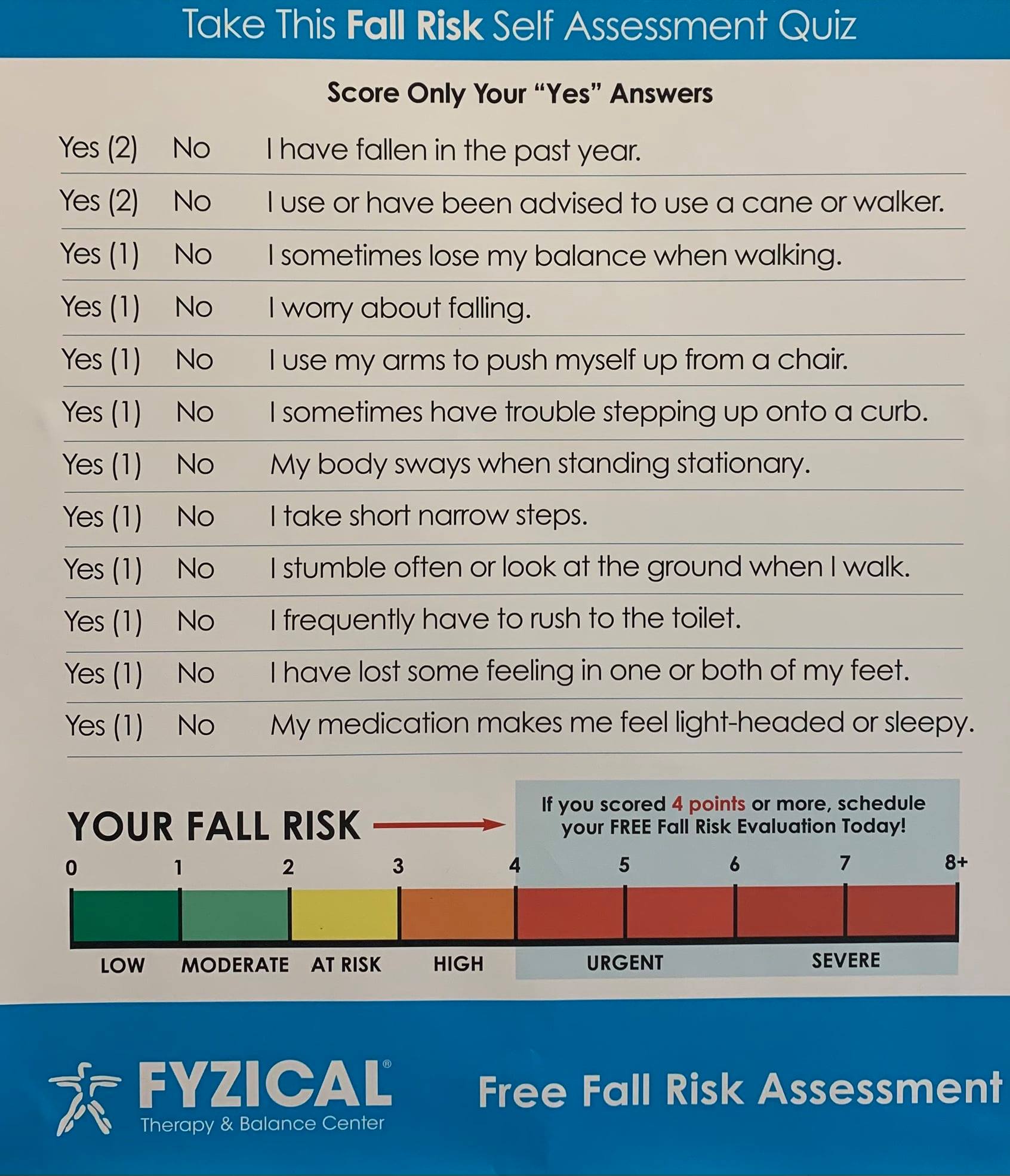Facts About Dementia Fall Risk Uncovered
Wiki Article
Dementia Fall Risk - Truths
Table of ContentsThe Basic Principles Of Dementia Fall Risk Dementia Fall Risk Can Be Fun For AnyoneThe Basic Principles Of Dementia Fall Risk Dementia Fall Risk - TruthsDementia Fall Risk - Questions
The FRAT has three areas: drop danger status, danger variable list, and activity plan. An Autumn Danger Condition includes information concerning background of current drops, drugs, mental and cognitive status of the person - Dementia Fall Risk.If the client scores on a risk variable, the equivalent number of points are counted to the client's loss threat rating in package to the much right. If a patient's autumn danger rating completes 5 or higher, the individual goes to high threat for falls. If the individual scores just 4 factors or lower, they are still at some danger of falling, and the registered nurse needs to utilize their ideal scientific analysis to handle all loss threat variables as component of an all natural treatment plan.
These standard strategies, in basic, aid create a safe atmosphere that decreases unexpected drops and marks core precautionary measures for all patients. Indicators are important for clients at danger for drops.
Everything about Dementia Fall Risk
For example, wristbands ought to include the individual's last and first name, day of birth, and NHS number in the UK. Details should be printed/written in black against a white background. Only red shade should be used to signal special patient status. These recommendations follow current developments in patient identification (Sevdalis et al., 2009).
Things that are also much might require the patient to get to out or ambulate needlessly and can potentially be a threat or contribute to drops. Aids stop the client from heading out of bed with no help. Nurses react to fallers' phone call lights faster than they do to lights initiated by non-fallers.
Visual problems can significantly create falls. Keeping the beds closer to the flooring reduces the danger of drops and severe injury. Positioning the bed mattress on the flooring considerably lowers fall danger in some healthcare settings.
The Ultimate Guide To Dementia Fall Risk
Patients who are tall and with weak leg muscular tissues that attempt to sit on the bed from a standing setting are most likely to drop onto the bed because it's as well reduced for them to decrease themselves safely. If a high person attempts to get up from a low bed without help, the person is likely to drop back down onto the bed or miss out on the bed and drop onto the flooring.They're created to advertise prompt rescue, not to stop falls from bed. Audible alarms can also advise the individual not to get up alone. Making use of alarms can likewise be a replacement for physical restraints. Besides bed alarms, raised supervision for high-risk individuals also may help avoid falls.

Individuals with a shuffling stride rise fall possibilities considerably. To minimize fall danger, footwear must be with a little to no heel, thin soles with slip-resistant walk, and support the ankles.
Top Guidelines Of Dementia Fall Risk
People, particularly older adults, have reduced aesthetic capacity. Illumination an unknown atmosphere assists increase presence if the person have to obtain up at evening. In a research, homes with ample lights report less drops (Ramulu et al., 2021). go to this site Renovation in lights in your home might reduce fall rates in older grownups (Dementia Fall Risk). Using stride belts by all healthcare carriers can advertise security when helping individuals with transfers from bed to chair.
Caretakers work for assuring a protected, protected, and risk-free atmosphere. Research studies demonstrated very low-certainty evidence that sitters reduce loss danger in severe care medical facilities and just moderate-certainty that choices like video clip monitoring can lower sitter use without boosting autumn risk, recommending that caretakers are not as valuable as originally thought (Greely et al., 2020).
The 4-Minute Rule for Dementia Fall Risk

Raised physical conditioning reduces the danger for falls and restricts injury that is sustained when loss transpires. Land and water-based workout programs might be likewise beneficial on equilibrium and gait and thereby decrease the risk for drops. Water workout might contribute a favorable benefit on equilibrium and stride for females 65 years and older.
Chair Increase Workout is an easy sit-to-stand workout that helps reinforce the muscle mass in the upper legs and buttocks and enhances flexibility and self-reliance. The objective is to do Chair Rise exercises without making use of hands as the client ends up being more powerful. See sources section for an in-depth guideline on just how to perform Chair Increase workout.
Report this wiki page